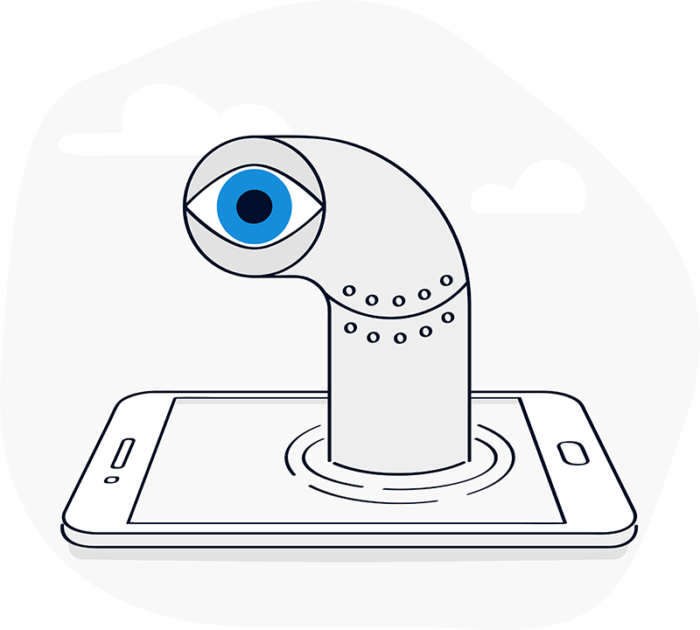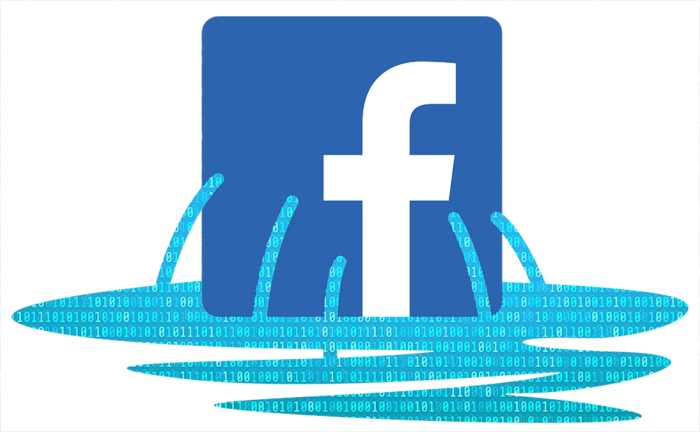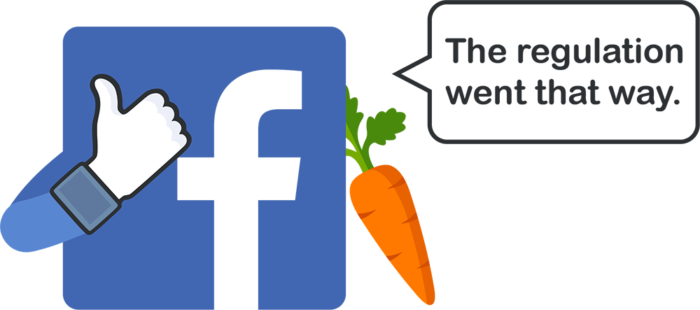Published Date: 05-01-19
By Justin Sanders
We’re almost a third of the way through 2019, and Facebook and Google’s endlessly burning dumpster fire is still burning hotter than ever. Their most recent jaw-dropping Gaffe? While claiming to have their content moderation problems under control, both companies were left scrambling to remove millions of videos of a New Zealand gunman’s murderous rampage – and they still failed to squelch them all.
What’s more, it looks like at least one of them has given up on even trying to control what happens on their platform. How else to explain Mark Zuckerberg’s call for more internet regulation? His tone was typically hopeful and conciliatory – but, as usual, he offered no meaningful solutions. Instead, his “Four Ideas to Regulate the Internet” came across as both a foisting of the problems on to someone else (i.e., the governments of the world) and a cynical attempt to shape any forthcoming policy in Facebook’s favor.
We just don’t see Zuckerberg as taking responsibility – he’s actively shirking it. And, as a scathing Bloomberg report recently pointed out, so is Google’s YouTube. It’s never been clearer that the time for #PlatformAccountability is NOW. Here are 13 MORE reasons why that’s true, from across the spectrum of political, cultural, and sociological discourse:
Because this Facebook policy change should have happened years ago – and might have with a little more accountability:
“Today we’re announcing a ban on praise, support and representation of white nationalism and white separatism on Facebook and Instagram, which we’ll start enforcing next week. It’s clear that these concepts are deeply linked to organized hate groups and have no place on our services.”
– Facebook blog post on March 27, 2019
Because the world’s biggest social media platform is under criminal investigation.
“A grand jury in New York has subpoenaed records from at least two prominent makers of smartphones and other devices… Both companies had entered into partnerships with Facebook, gaining broad access to the personal information of hundreds of millions of its users.”

Because YouTube is still putting our children in grave danger.
“Within two clicks, I was able to enter into a rabbit hole of videos where children are being eroticized by pedophiles and child abusers… The content became more flagrantly sexualized the more I clicked, as the YouTube recommendation algorithm fed me more and more videos with hundreds of thousands, and sometimes millions, of views. Despite YouTube’s claims to be cleaning up this content, YouTube so far still continues to monetize videos that eroticize young children and that serve as hubs for pedophiles to network and trade information and links to more graphic child pornography.”
– Haley Halverson, Vice President of Advocacy and Outreach at the National Center on Sexual Exploitation
Because endangering children seems to be part of YouTube’s business model.
“The pedophile crisis, like all YouTube crises, is a direct result of the platform’s business model… It is extremely important to note that YouTube’s algorithm was not malfunctioning; by recommending more and more videos to pedophiles of girls in swimsuits or doing gymnastics, it was functioning exactly as intended: to keep users on the site as long as possible so YouTube could make more money.”
– Josh Golin, executive director, Campaign for a Commercial-Free Childhood
Because misinformation and harassment are also part of YouTube’s business model.
“It started when I searched ‘For Alison,’ the name of our nonprofit, on Google. The search returned a YouTube video posted by an anonymous conspiracy theorist alleging that our foundation was a scam. This prompted me to search our daughter’s name, which led me down a rabbit hole of painful and despicable content, including claims that Alison had plastic surgery and was living a secret life in Israel. As much as I want to blame the sick creators for the pain I feel, I blame Google even more. By surfacing this content and profiting from the data Google collects from those who view it, Google is monetizing Alison’s death and our family’s pain.”
– Andy Parker, whose daughter, journalist Alison Parker, was shot by a gunman on live television in 2015
Because YouTube could have fixed its issues, but actively chose not to.
“In recent years, scores of people inside YouTube and Google, its owner, raised concerns about the mass of false, incendiary and toxic content that the world’s largest video site surfaced and spread. One employee wanted to flag troubling videos, which fell just short of the hate speech rules, and stop recommending them to viewers. Another wanted to track these videos in a spreadsheet to chart their popularity. A third, fretful of the spread of ‘alt-right’ video bloggers, created an internal vertical that showed just how popular they were. Each time they got the same basic response: Don’t rock the boat.”
Because it may already be too late for the platforms to fix their broken business model, even if they wanted to.
“Facebook and others have grown to their current monstrous scale without putting guard rails in place to deal with what was predictable harm. Now they have the unbearably difficult problem of going back and trying to retrofit a system to deal with what is a spectacular array of troubling content, from child sexual abuse, terrorism, hate speech, the sale of illegal and deadly drugs, mis-information, and on and on.”
– Hany Farid, professor of digital forensics at UC Berkeley

Because even advertisers are getting scared off by these ‘despicable’ practices.
“Facebook has a frankly despicable business model that’s predicated on violating people’s privacy and running an ad monopoly… I think more people and more businesses should vote with their presence, vote with their ad dollars and consider what they want more of in this world. Our conclusion was we would like less Facebook.”
– David Heinemeier Hansson, CEO of software company and former Facebook advertiser, Basecamp
Because how do you “fix” something that was designed to work this way?
“Intent is far less important than the actual outcomes. And the outcomes appear to suggest that these platforms were intentionally designed to keep you glued to your screen for one more video, one more retweet, one more outraged share of a hate read. How can the mess be unwound? Can it be fixed? Those are the complicated questions. But the answer as to how we got here in the first place is much less complicated than Big Tech wants you to think. Intentionally or not, it was designed this way.”
– Charlie Warzel, New York Times Opinion writer
Because we’re tired of Mark Zuckerberg getting a free pass.
“Any settlement with Facebook must hold Mr. Zuckerberg individually accountable or his flagrant, repeated violations of Americans’ privacy will continue… Given Mr. Zuckerberg’s deceptive statements, his personal control over Facebook, and his role in approving key decisions related to the sharing of user data, the FTC can and must hold Mr. Zuckerberg personally responsible for these continued violations.”
– U.S. Sen. Ron Wyden (D, OR), in an April 23 letter to the Federal Trade Commission
Because we’re tired of Mark Zuckerberg trying to use regulation to shirk responsibility.
“I believe we need a more active role for governments and regulators. By updating the rules for the internet, we can preserve what’s best about it — the freedom for people to express themselves and for entrepreneurs to build new things — while also protecting society from broader harms.”
– Mark Zuckerberg in his essay, “Four Ideas to Regulate the Internet”
Because our democratic systems must frame this debate, not Mark Zuckerberg.
“By draping his essay in the guise of cooperation, Zuckerberg hopes to distract policymakers from the real threat. Internet platforms like Facebook and Google dominate the public square in every country in which they operate. Their code and algorithms influence our daily lives in ways far more intrusive than democratic governments or the law. No one elected these companies and they refuse to be held accountable. That must change. I welcome Mark Zuckerberg to the conversation, but do not believe he should be allowed to frame the debate.”
– Roger McNamee, author of Zucked: Waking Up to the Facebook Catastrophe
Because letting Mark Zuckerberg shape government policy would be like…
“…Bugs Bunny telling Elmer Fudd how to catch him.”

So, it would seem that Google and Facebook continue to behave recklessly – regardless of who calls them out, the bad press they receive, or who may get hurt in the process. Unfortunately, these companies have proven that they value the profits from their flawed business models more than they value the human beings who use their services.
While the world demands change and governments continue to question the character and practices of these platforms, Google and Facebook continue to make excuses, rather than simply assume responsibility.
However, expecting Google and Facebook to act responsibly is like expecting a newborn puppy to not have an accident on your carpet – the difference being that these companies shouldn’t be allowed to look at you with puppy eyes when their platforms have poop all over them.



